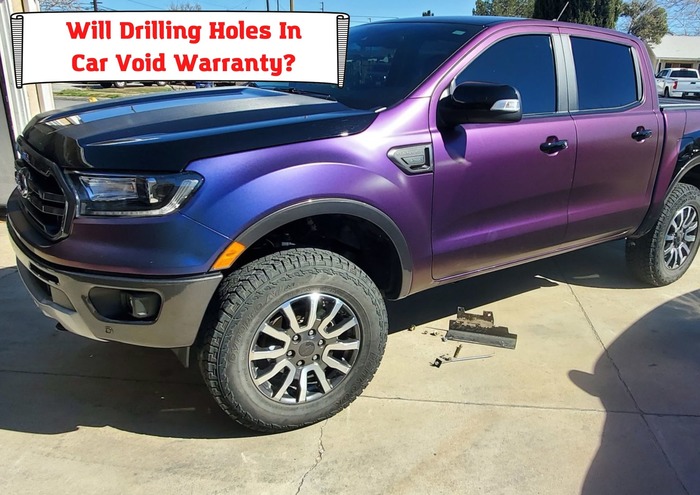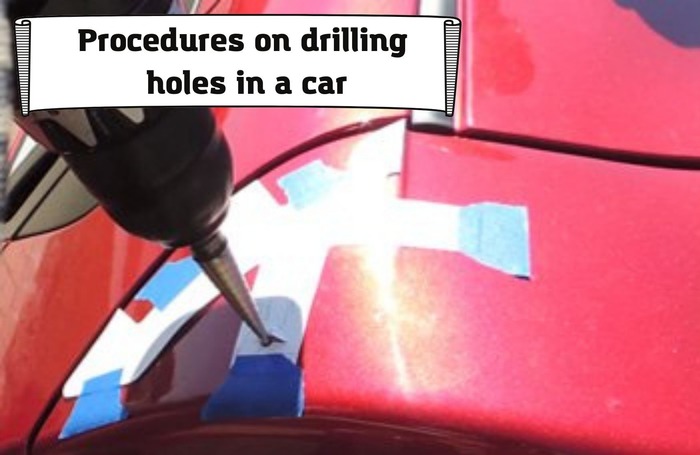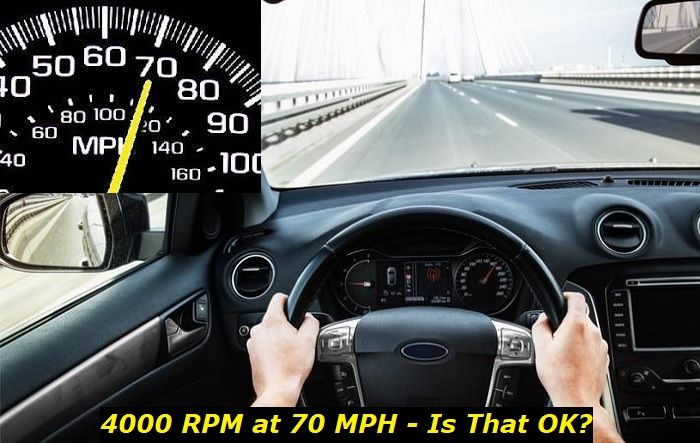
Drilling one of the surplus holes in the car body is important for fitting extras such as an aerial, wing mirror, or tow bar.
Although it is not that dangerous, errors are expensive. One slip of a power drill can result in crucial harm to the paint-work in a twinkle of an eye.
We recommend you avoid drilling holes in your car. If you still have to do it, please follow the instructions you will find in our article.
What does a car warranty mean?
While car insurance safeguards a vehicle after a casualty, a car warranty encompasses repair costs as a result of malfunctions.
A car warranty is also known as a manufacturer’s warranty, car warranties are mostly used as protection against unexpected, grand financial loss due to car breakdowns.
Car warranties cannot be obtained to protect parts that break as a result of wear and tear, such as windshield wipers, tires, and brake pads.
What does a car warranty cover?
Car warranties arrive in a diversity of packages such as powertrain, inclusionary, and exclusionary.
A powertrain warranty is the type of warranty that covers the main equipment like the engine.
An inclusionary warranty is further comprehensive, encompassing a certain list of factors.
An exclusionary warranty functions as a defense net, as the highest category of coverage aside from a manufacturer’s warranty.
What voids a car warranty?
There is a difference between a voided policy and what the policy clearly won’t cover. Most warranties are somewhat adjustable. The only aspect that will immediately invalidate a policy is if your car is given a release title and confirmed a total loss. In other situations, there may be more sway room.
A change to the vehicle normally won’t void your warranty, and you can also sometimes use aftermarket stand-in parts for repairs. Nonetheless, the warranty won’t encompass an aftermarket part after it shatters, so be sure to prevent using uncertain components.
Also, warranties do not enclose components cracked during a race or game involving off-roading of any type. Likewise, warranties won’t protect parts that are broken due to ignorance or mishandling.
What does an extended warranty mean?
An extended warranty covers the cost of repairs or substitute parts, and sometimes roadside service. Often known as mechanical breakdown insurance, it can prevent having to pay for several repairs. Acquiring this warranty makes sense if you drive a used car and its initial warranty has expired.
Occasionally, you can prolong the warranty so that it encompasses you for a year or two more, or so the warranty comprises a cover for additional problems. You’ll need to pay a bit more if you want to elevate your warranty.
Car warranty advantages
- Satisfaction and comfort. As with a warranty, the fundamental advantage is not having to bother about unforeseen costs.
- Customization. You can select from several coverage levels or concede with car warranty companies for a deal that serves best for you.
Car warranty disadvantages
- They don’t cover everything. Same as home warranties, most car warranties have thresholds on the categories of repairs or the number of repairs they’ll enclose.
- It’s often an adequate deal for the warranty company than you.
Will drilling a hole void the warranty?
Now you know that there are different types of warranty like powertrain warranty, body rust warranty, extended warranty, etc.
Drilling holes in your car will void the body rust perforation warranty, but you will still have the right to use the powertrain warranty. So be careful when attaching anything new to your vehicle – you may lose an important warranty.
Procedures on drilling holes in a car

Every DIY worker experiences a bit of drilling, from time to time, while operating on their projects. Beginning from putting in curtain rods, fixing shelves, or TV on the wall to erecting a fence, drilling is needed in virtually all of these around-the-house ventures. Although nearly everyone possesses a drill, only a small percentage of people understand how to use it effectively and safely.
If you plan to restore an automobile, you'll almost certainly need to drill a lot, so here are some tips and methods.
The drill should have the maximum amount of power. That is to say, the higher the current requirement (amps), the more powerful it is.
Your drill should have a 3/8ths chuck (keyless if possible) and be the variable speed with reverse, regardless of brand or model. Drilling operations without variable speed are extremely difficult to control.
When it comes to drilling, knowing a few basic tricks can go a long way to enhancing your day-to-day projects. Here, we will be reviewing some helpful tips and procedures that will enable you to drill better holes in cars and other materials.
When drilling, if you do not understand what you are supposed to do, a lot of things could go wrong. Inadequate drilling can cause unaligned holes, wrecked drill bits, scraped metal. Drilling a hole adequately banks primarily on the method of the user and the kind of equipment they use.
Therefore, before beginning your DIY project, it is crucial to do your inquiry on the tools you will need and make an allocation based on that. Below are the procedures for drilling.
Use a sacrificial board
When drilling on a piece of wood or metal, your drill can crash through it producing a splintered hole on one side. This is labeled a blowout. It is a popular issue that numerous DIY workers encounter when using a drill.
These blowouts or splinters can harm the piece of material you are drilling and can wreck its look. They can also be extremely dangerous, oftentimes, since the drill spurting through the hole can result in you losing composure.
To avert such splinters, tear-ups, or blowouts, you can utilize a sacrificial board below or on top of the substance you are drilling and pin everything down. A sacrificial board obstructs a blowout from occurring.
If you want to get a more detailed and cleaner hole, you can pin the wood on both sides of the material.
Hammer a Hole Before Drilling
Most drill bits incline to move diverging across the surface against the applied pressure. There is a small maneuverer that can help you prevent this. Just mark where you want to drill the hole and then make a small dent utilizing a hammer and center punch. This will give support to the drill bit once you begin drilling.
Always Lubricate Your Bits
Oiled drilling bits last longer because it reduces friction and heat accumulation, and even renders the drilling procedure straightforward. If you’re drilling thicker steel, it is favorable to use chopping fluid. For drilling through softer metals like brass, cast iron, or aluminum, it isn’t important to use lubrication.
Begin with a Small Hole
Before creating large holes, it is often an excellent step, to begin with, a small hole. It is common for most drill bits to be up to 1 inch in diameter, but for the best outcomes, you should often start small with a ¼ inch drill and then utilize larger bits in quick successions until you achieve your required drill bit size.
Resist Using Excess Force
When drilling on any solid object like metal, it is crucial to drill vertically. You have to maintain a 90° angle and adequate pressure to get a neat and detailed hole. If you bend or drill from a slightly varied angle, the hole will not be accurate and the exit hole will be far from where you predicted.
To prevent rusting, several various rust protection technologies emerge, all at numerous price and dependability levels.
Electronic rust prevention
Rust appearance is a chemical process where metal blends with oxygen in the environment. In assumption, this chemical process can be de-stress through the application of electrical voltages that render it hard for molecules of oxygen to connect with molecules of metal.
Dripless applications
Thick material is applied to the underbody, and pumped into certain areas of the inside of the frame as well, through holes drilled. The substance solidifies and gives outstanding protection.
Conclusion
The warranties simply come into use when a rust situation takes off so far that it results in body perforation.
Manufacturers don’t enable holes to be drilled to wipe out dents, it’s a protection issue. So this actually voids the warranty for the body of your car. You may have heard that manufacturers give a so-called perforation warranty. If you perforate your car by yourself, you will lose this warranty immediately.
About the authors
The CarAraC research team is composed of seasoned auto mechanics and automotive industry professionals, including individuals with advanced degrees and certifications in their field. Our team members boast prestigious credentials, reflecting their extensive knowledge and skills. These qualifications include: IMI: Institute of the Motor Industry, ASE-Certified Master Automobile Technicians; Coventry University, Graduate of MA in Automotive Journalism; Politecnico di Torino, Italy, MS Automotive Engineering; Ss. Cyril and Methodius University in Skopje, Mechanical University in Skopje; TOC Automotive College; DHA Suffa University, Department of Mechanical Engineering






Add comment